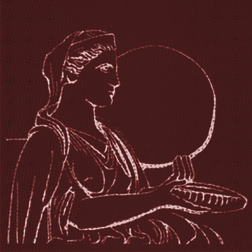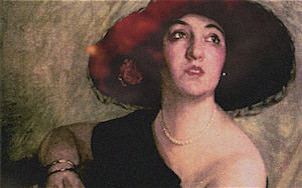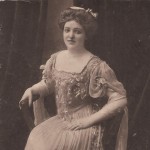Christomanos (1867-1911) returned to Greece in 1899 and in 1901 he founded the “New Stage”, a development that catalytically determined the theatrical identity of the dawning century. Christomanos’ life had been determined by a series of fateful downturns. A hunchback due to a childhood accident he became an extremely erudite and cultivated young man.
From the age of 21 he had lived in Vienna, the capital of the Habsburg Empire and a city at the centre of political and artistic developments at the end of the 19th-century. Three years later, he was invited by the Imperial Court to teach Greek, accompany and read to Empress Elizabeth, the famous Sissy.
The young man who had been wronged by fate remained a dreamer and found a soul sister in the sullen empress. Despite their significant age difference (she was 54 when they met) he felt an irresistible attraction towards her that became evident when a Viennese newspaper published “Diary Pages” describing his impressions of the years he spent near the empress. The scandal that erupted within the Austrian court was such that the crushed Christomanos was forced to return to Greece where he also published “The Book of Empress Elizabeth”.
Inspired by the vision of theatrical ensembles, along the lines of the “Free Theatres” movement that was rapidly expanding across Europe, Christomanos founded the “New Stage” and instilled groundbreaking mores in the theatre practices of modern Greece. On 27 February 1901, he invited a group of playwrights and intellectuals to the ancient “Theatre of Dionysus” under the Acropolis where he presented the founding manifesto of the “New Stage” and invited them to write new Greek plays and to contribute to the renaissance of “stage poetry and the dramatic arts in Greece”.
At the “New Stage”, the choice of repertoire -at least during the first years- the teaching of the actors, and the unrivalled attention Christomanos paid to the visual effect of the show created an integrated aesthetic proposition never seen before. He also introduced to Greece -albeit temporarily- the notion of the stage director as the main determining factor in a performance. It was in this climate of momentous changes in the Greek theatre that Kyveli got her baptism of fire on stage. In September 1901, at the age of 13 she debuted in the role of Juliet in the balcony scene of William Shakespeare’s Romeo and Juliet during a special performance.
The 34-year-old founder of the “New Stage” became Kyveli’s Pygmalion. For a true representative of aestheticism like Christomanos, the young actress represented the incarnation of Beauty, his Muse: “This, my creature, more mine than if she were my daughter, has incorporated my voice, my movement and the internal rhythm of my being…”, he wrote in later correspondence.
During the four years of the “New Stage” existence, Kyveli was its brightest star and excelled in both dramatic and comedy roles in foreign plays (by Ibsen, Goldoni, Tolstoy, Maeterlinck, Chekhov, Brieux, Copet, Daudet, Courtelin, etc) that had not been performed in Greece before.















